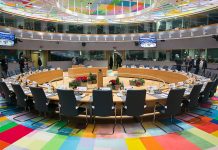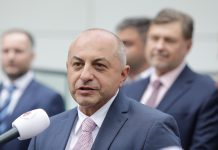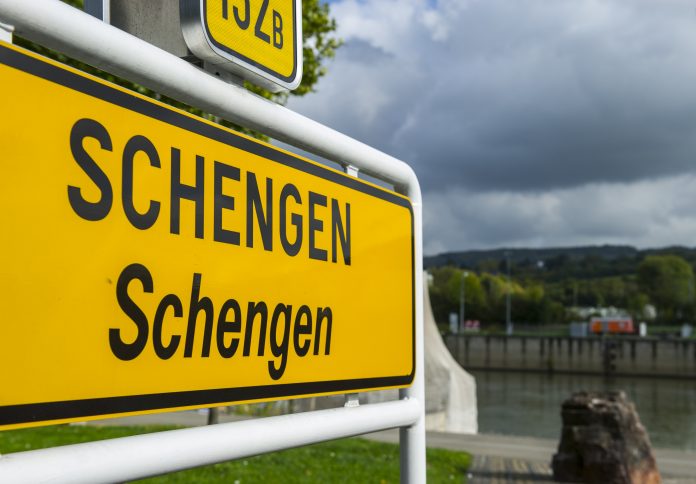Bulgaria could join Schengen in October, if the government and the parliament in Sofia maintain the speed of preparations set by the current interim government after their elections on April 2, declared Bulgarian president Rumen Radev, in Brussels for the EU summit, according to News.ro.
„Bulgaria is receiving more and more support for its accession to Schengen”, President Rumen Radev assured. „We have already received a specific period in which we can achieve it. From my point of view, in October – if we implement all the important steps, and the legislation is very important – Bulgaria will be able to join the Schengen area”.
In early March, Minister of the Interior Ivan Demerdjiev announced that there had been a change in Austria’s position, and that the European Commission and the Netherlands had agreed on measures to respond to the Dutch request for a new assessment from Brussels of the fight against corruption and respect for the rule of law in Bulgaria, the source says.
Bulgaria’s president praised the current interim government for „making progress in reducing illegal migration”.
Speaking in Brussels to Austrian broadcaster ORF, President Radev thanked Vienna for its support for Bulgaria to obtain funding from the European Commission to improve security along the Bulgarian-Turkish border.
In December, Austria opposed Bulgaria’s and Romania’s entry into Schengen supposedly because of the large number of illegal immigrants who are not registered at the Bulgarian border and are arriving in Central Europe.
Austrian Chancellor Karl Nehammer insisted the EU should pay for a fence along the border with Turkey to stop people-trafficking. However, the European Commission rejected the initiative, explaining that it will not give money for fences and walls and that EU countries are obliged, under international law, to allow people seeking protection to request it at the EU’s external borders, and such facilities would be an obstacle to their rights, the source states.
A month ago, however, Brussels announced that it agreed to finance a pilot project to improve technical equipment at the border, including the installation of cameras and aerial surveillance systems to track and stop illegal immigrants.
„So far we have 600 million euros for technical and surveillance systems, not for fences, but I hope that one day we will go further and decide on the fences as well”, said Rumen Radev in Brussels, thanking the Austrian authorities for their support.
„There is still no firm decision to build a fence, but huge progress has been made, including the strong commitment of Austria and Chancellor Karl Nehammer for financial support for the Bulgarian-Turkish border, for the installation of surveillance equipment, which is very necessary”, added Radev.
The project, which Interior Minister Ivan Demerdjiev spoke about at the beginning of March, provides for the technical equipment of 110 km of the Bulgarian-Turkish border with cameras, sensors and aerial surveillance with drones, as well as connecting them to a common system that it will be used by the border police.
According to President Rumen Radev, talks with Austrian Chancellor Karl Nehammer and Dutch Prime Minister Mark Rutte continue.
The President of Austria, Alexander Van der Bellen, has criticized the Austrian Chancellor Karl Nehammer for the decision to block the accession of Romania and Bulgaria to the Schengen area. He says the attitude of the government in Vienna is affecting „Austria’s reputation”.
According to Austrian media, Van der Bellen emphasized that Romania, like Bulgaria, is ready for Schengen accession. „Of course we need to know who enters the EU and Austria, who applies for asylum. And, of course, the EU must control its external borders”, said the federal president during a discussion with the EU ambassador Martin Selmayr, but „Romania and Bulgaria meet the Schengen accession criteria. I am concerned about Austria’s reputation among our European partners.”
Van der Bellen also referred to the dissatisfaction of the business environment regarding the decision of the Austrian government. „When well-known companies from Austria that operate successfully in Romania say that they are concerned about the current Austrian policy, these voices should be taken seriously. It’s about real orders, real sales and real jobs. Both in Romania and here in Austria. In this sense, I hope that a solution can soon help calm the situation”, Van der Bellen said. „If we tell these people now: ‘You are not welcome’, then it will have negative effects for people who need care in Austria and their families,” Alexander Van der Bellen added.
Meanwhile, Romania’s President Klaus Iohannis stated: „These initiatives are welcome, because it is good to know that not only we, the politicians, want Romania to enter Schengen, we are not the only ones who want to protect the environment. It is good to have the support of civil society, of ordinary people and to we know that they also want these things and they want a cleaner environment. Whether through such initiatives the actual process will be accelerated, we will see. In reality, the process is taking place where it took place from the beginning. The European Parliament of many gave resolutions of this type that Romania and Bulgaria must be part of Schengen, but the law is that voting takes place in the Union Council, in the JAI format, so the decision is made there. Of course, in order to reach a favorable decision, all the world has to get involved politically as well, starting from the president, to the prime minister, the home secretary, the foreign minister and so on. Everyone is working together to get this result. This time it’s complicated because Aust ria, for internal electoral reasons, opposes the extension of Schengen”, as quoted by Agerpres.
















